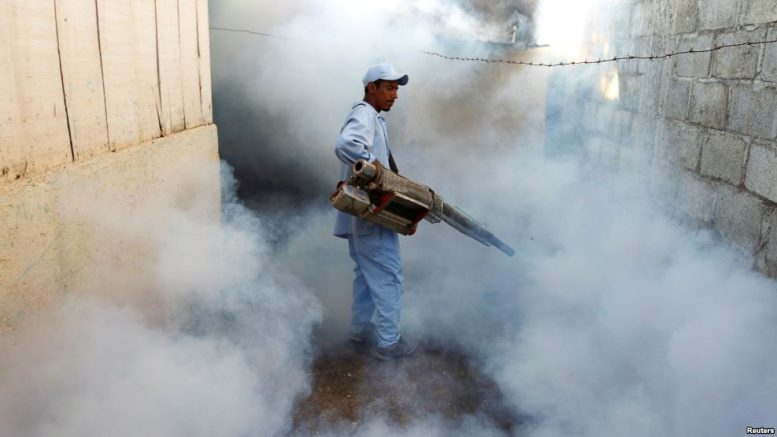The cause of a severe form of dengue fever has been identified. The finding offers the possibility of earlier lifesaving care and the development of drugs to treat the tropical illness.
Experts say one-third of the world’s population lives in countries where dengue fever is endemic. It is caused by the bite of a mosquito that harbors the dengue virus.
There are four varieties or stereotypes of the virus. The symptoms — fever, body aches and malaise — can be relatively mild the first time a person is infected.
A second infection, however, can be life-threatening. It can cause a hemorrhagic form of the disease, leading to severe bleeding and death.
The question for scientists is, “why?”
The findings
An international team led by Jeffrey Ravetch found that it has to do with protective antibodies that are produced by the body’s immune system when exposed to dengue a second time.
“If they are not able to neutralize the viral strains, but not seeing the right structures on the virus or if they are not in a high enough concentration called a titer, then instead of protecting, they actually enhance disease,” said Ravetch, head of the molecular genetics and immunology lab at Rockefeller University in New York.
“They can do that because the antibodies actually will bind to the virus instead of eliminating the virus,” he explained. “They actually aid the virus in infecting cells.”
The phenomenon is called antibody-dependent enhancement or ADE.
Ravetch and an international team of scientists identified a sign or signature of the misdirected antibodies that can lead to hemorrhagic dengue. The finding was published in the journal Science.
“So it can be a diagnostic tool,” he said. “We know who is at risk. We can see the patients coming in [to the hospital] with dengue fever and say, ‘Gee, you’re at risk to develop hemorrhagic fever. You can get really sick.’ So, we can take preventive measures. We can put you into a more intensive care-like environment. We can make sure your fluids are controlled. If we can do better care for these patients, you know, waiting for them to come in with shock.”
There is currently no treatment for severe dengue, only supportive care.
Viable vaccines
By identifying the mechanism that causes the hemorrhagic form of the disease, Ravetch said it may be possible to develop treatments that interrupt the infection.
Currently, there is a vaccine against dengue virus called Dengvaxia, but it is only about 60 percent effective in protecting people against infection with the disease.
In some cases, the vaccine has produced a severe form of dengue in people who are vaccinated. It’s as if the inoculation acts as a first infection producing the life- threatening hemorrhagic form if and when someone actually contracts the illness from an infected mosquito.
Ravetch said he’s interested in seeing whether there’s an antibody signature in those who become sick after being vaccinated against dengue.
Ravetch notes that dengue is in the same family of viruses as Zika.
Experts say a past infection with dengue makes it more likely that someone will develop a form of Zika that causes birth defects and other severe complications.
So a treatment for dengue virus might also inform scientists trying to develop a cure for Zika.

